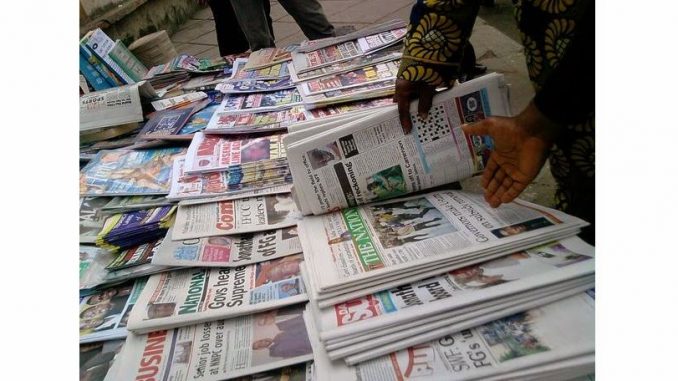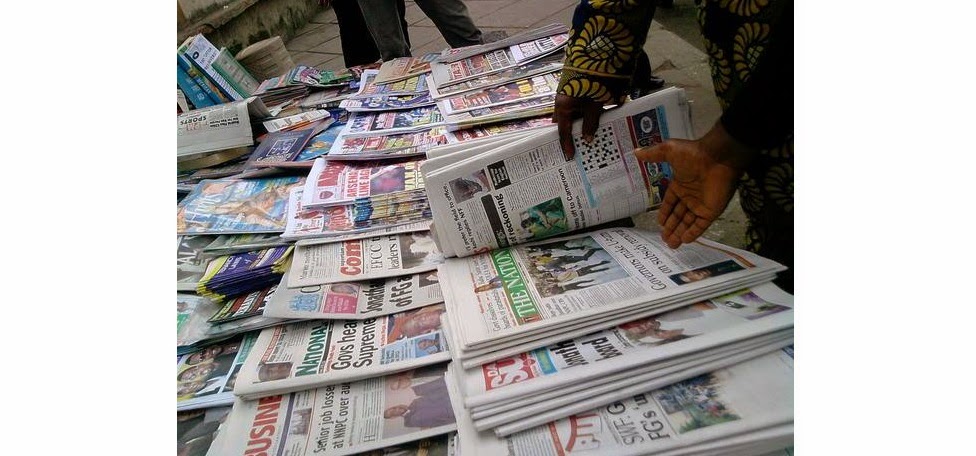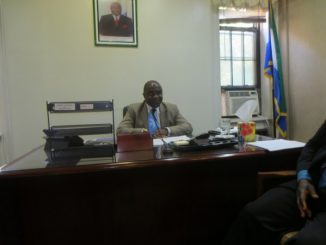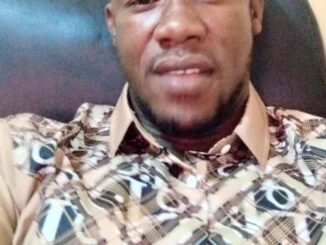
NIGERIA faces momentous elections on Saturday in which the registered 84 million voters are set to elect a president for another four years. Simultaneously, there will be voting for 109 Senate and 360 House of Representatives seats. As expected, the presidential ballot has generated keener interest because, more than any other elected official, the president calls the shots in a presidential system of government.
Alexis de Tocqueville, a French historian and writer, once said that, in a democracy, the people get the government they deserve. Since May 29, 1999 when we escaped from 15 brutal years of military dictatorship, the country has been in a state of economic sclerosis and political uncertainty because most of its elected leaders were not up to the job.
Today, Nigeria is a deeply divided country, falling short in virtually all human development indices, but setting abysmal records in most national vices as a result of inept, clueless and rapacious political leadership. This general election, therefore, ought to be a historic marker for our democracy, national development and economic growth. The alternatives for the country are bleak. This places a huge burden on all stakeholders, especially the Independent National Electoral Commission, to ensure that people’s votes count.
THE PUNCH
—————————————————————————-
LET THE WILL OF OUR PEOPLE PREVAIL
TOMORROW, Saturday, February 16, 2019 is Nigeria’s Election Day. Millions of Nigerian registered voters – 84,004,084, according to figures published by the Independent National Electoral Commission, INEC – are expected to troop to the polls to elect a President to run the affairs of this country for the next four years as from May 29, 2019.
While we urge the various state institutions responsible for carrying out this sacred national assignment – the INEC, Police and other security agencies – to perform their functions without fear or favour, we make haste to caution that the job should not be left to them alone. For the election to succeed, there must be vigilance on the part of all concerned. The political parties must send credible agents to all polling booths and collation centres. They must monitor the INEC and local/international observers’ Situation Rooms and report any infractions promptly.
The voters should turn out en-masse. Massive turnout helps to minimise election rigging. It reinforces the manpower needed to protect the vote. It ensures that the vote counts. We welcome wholeheartedly, the role of the international community in ensuring the emergence of a legitimately elected leadership.
The heavy presence of the various international observer groups will go a long way in moderating the excesses of unpatriotic politicians who might want to steal or buy the vote or perpetrate violence. The world cannot afford the consequences of a miscarried election in Nigeria of nearly 200 million people. Foreigners should never directly interfere with the actual conduct of elections. Well-meaning Nigerians must appreciate the help of the international community to ensure the triumph of the supreme mandate of our electorate.
As we go to the polls tomorrow, let us be reminded that elections are only a means to an end: good governance. This can only be possible in an atmosphere of peace. Let us improve on our 2015 achievement where the loser congratulated the winner, and the whole world applauded Nigeria.
THE VANGUARD
——————————————–
2019 Elections: Why Nigerians Are Not Celebrating
Elsewhere in developed democracies, preparations for elections are seen by the people as periods of fun, more like carnivals. Candidates meet the electorate in a relaxed atmosphere to explain why they are in the race. On the part of the people, they welcome their prospective leaders with hope, relate with them freely and extract commitments from them on what they expect to get in return when they vote for them – good governance. Some even contribute to the financial expenses of the candidates as proof of their acceptance of them.
That also serves as a warning to the candidates that they will be held accountable while in office. The people, during the period, are proud to flaunt the nation’s symbols – flags in particular, convinced that they are part of a process that will further the growth of the nation in all its ramifications. In those climes, participating in the democratic process is seen as a civic, patriotic duty Such cannot be said about elections in developing nations in Africa and, especially, in Nigeria because of the belief that democracy is nascent, young and is still forming.
Sadly, we dare say, that perception of this system of government is giving the political operators the temerity to do the unthinkable and explain it away as part of the learning process. It is also only in this part of the world that the electorate take promises by the politicians with a pinch of salt. That perception, in our view, could be the reason behind voter apathy which begins from the unwillingness on the part of the people to register at all. They wait to be prodded before they can see the need to participate in the exercise. And even when the voters register, they don’t see anything wrong with selling their voter’s card for a pittance because, in their thinking, that may be all they expect to get from the candidate or even the party when elected.
For the political class who sees getting into a public office as not a chance to serve but as an opportunity for self-aggrandisement, the near passive attitude of the electorate serves their purposes well enough. They are averse to voter education that will enlighten the electorate on the benefits of democracy. That will truncate their intentions for seeking public office which is, essentially, to lord it over the uninformed populace. They prefer to exploit their ignorance by buying their votes which they see as an investment that will, eventually, yield returns in multiples. And in all cases, it does happen, as a politician who goes into office without a clean pair of shoes comes out with mansions, fleets of exotic cars and fat bank accounts. Unfortunately, in our opinion, that has been the experience of Nigerians and their elected leaders.
Tomorrow, Nigerians will troop out again, in their numbers, to cast their votes in the long awaited general elections that will produce the country’s leaders for the next four years. As that day arrives, feelings of trepidation are palpable. The people are not too sure of what to expect from a process that has countlessly failed them. That feeling is not in any way assuaged by the shenanigans of the average politician and his cohorts who, in actual fact, are planning on manipulating the exercise regardless of what the voters do at the polling booths.
Already, some of the politicians are promising to deliver millions of votes far in excess of the number of registered voters for their preferred principals. For them, democracy is a game of numbers; it does not really matter how those numbers are amassed In Nigeria, we dare say, subterfuge, deceit, lies and resort to benign neglect of the people are some of the tools that come in handy in the race for political office.
Furthermore, the non-political actor is made to accept that politics is a dangerous game in which the faint-hearted are excluded; those without heavy war-chest are scared off and the lily-livered are crushed mercilessly. These are what the electorate get away with from political rallies, find on campaign posters, listen to in jingles and other electioneering materials. Instead of edifying the mind and arousing interest, they frustrate and discourage the people who look on as spectators in their own game as nitwits and misfits are foisted on them as leaders. This is why Nigerian voters are not celebrating a system in which, under normal circumstances, they are not only kings but also ought to hold all the aces.
THE LEADERSHIP NEWSPAPER
D-DAY
At last, the 2019 General Elections. Polls must be free and fair to be credible
Tomorrow, about 84 million eligible voters are expected to turn up at 120,000 polling units to elect the fourth President of Nigeria in the Fourth Republic. It would be the sixth general election since the transfer of power from military to civilian leaders in 1999.
We agree with the national chairman of INEC, Professor Mahmood Yakubu, that, with about 20,000 candidates contesting for the various positions, this will be the keenest contested election ever, thus requiring the attention of all patriots.
The electioneering campaign has once again exposed the usual fault lines. Apart from those who died as a result of stampedes at political rallies, supporters of the major presidential and governorship candidates clashed in many states, leading to needless loss of lives. This signposts what may follow the election for executive positions if the electoral commission officials and security agents fail to perform their duties conscientiously. Allegations of partisanship against the agencies already pervade the air. As usual, the polity has been heated up by candidates and other political agents, with their reckless and unguarded statements. This must be immediately nipped in the bud.
It is not enough to bind the presidential and governorship candidates to maintenance of peace, the security agencies should invite and warn those whipping up sentiments that could provoke clashes. Politicians should realise that elections are periodic and losers today are potential winners if they abide by the rules and bid their time, while building up their parties. If the elections are peaceful, we are all, in a way, winners, but, if the country burns, we are all losers. In Afghanistan, Yemen, Somalia, South Sudan where the states failed, everybody lost. Lives were not only lost, even the most vulnerable in the society could not survive assaults by poverty, starvation and preventable diseases.
Nigeria is a beautiful country still far from the dream of the founding fathers. The economy remains fragile, polity ill-defined and social fabric weak. Fixing these is the challenge of the moment. So far, not much of the how has been carefully laid out in the campaign, and the elite has refused to rigorously engage the candidates with a view to outlining their vision and assessing their competencies.
Even before the elections are held, there are already lessons to be drawn for the future. The electoral commission must always show that it is dispassionate in decision making, regularly engage with the interagency electoral security body, and be anticipatory in securing the commission’s offices at the federal, state and local government levels. The ruling government has the primary responsibility for safety of lives and property. It does not exist to promote the interest of the ruling party only. This does not preclude the opposition parties from responsibility. Nigeria belongs to all, and the precedents laid today could be played back tomorrow when they may be in power.
We salute the doggedness of the small parties that have continued to soldier on despite the odds. So had smaller parties performed until they became forces to reckon with in countries like the United Kingdom and Germany.
Nigeria’s future is bright, but today’s leaders should be responsible if history is to be kind to them.
THE NATION




